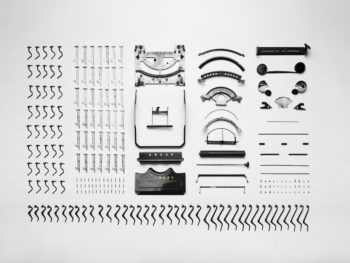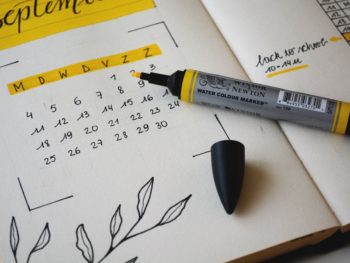
The stack of books glared at me from my nightstand. Nearly 2 p.m., time to go to class, and yet I hadn’t picked up my Bible that day.
Lazy, I said to myself. When will you start making God’s Word a priority?
I sighed. If I hurried, I could get in fifteen minutes.
Cross-legged on my single bed, I set my notebook in my lap, and my Bible and quiet time idea book by my knees on the mattress.
Hosea again. I glanced at the Bible study prompts. Another two days, and I’d be done, finally.
I read: Do not rejoice, O Israel; do not be jubilant like the other nations. For you have been unfaithful to your God; you love the wages of a prostitute.
Oh, God.
I was so tired of verses about unfaithful prostitutes. Sure, I knew I was unfaithful to God—just look at my laziness this morning. I was sure the verses were talking about me. I was the unfaithful prostitute. I was the ugly sinner.
But I was desperate to read something else.
I sighed. Surely even this wish showed my unfaithfulness.
I forced myself to keep reading. I forced myself to see myself in the Bible’s harshest words that day, just like I’d done the day before, and the day before that.
I thought this was what God expected of me.
***
Twenty years later, I came across that notebook in a box in my garage. I’d saved it through a dozen moves, but had never looked inside. I’d never been brave enough.
It didn’t look very scary: an unlined drawing notebook, a magazine photo of a sunset taped to the front, with a verse from the Psalms layered over it: Delight yourself in the Lord, and He will give you the desire of your heart.
I wondered, with a quickened heartbeat, if I was ready to read it.
No time like the present, I thought, and opened the cover, bracing myself as if it concealed shards of glass.
I squinted at pages crowded with the tiniest cursive. The tiny, smashed-together words shouted out the desire of my heart back then: a desire to do more, be more.
I had longed for God’s word to set me free. I had hoped it would fix me, scrub my insides, and cleanse me.
And don’t get me wrong—I believe God’s Word can do those things. It is a transformative book; reading its words can bring life.
But it’s also described as a double-edged sword, isn’t it?
What I realized, re-reading that notebook, is that I had used God’s powerful Word to cut myself.
I sat down on the floor of my garage, reading entries filled with shame instead of God’s grace. I was astonished at how my self-loathing shone through each page.
I’d always identified with the worst character in each prophecy, always assuming I was the evildoer, the harlot, the beast. In my naiveté about the Bible, I’d missed that the prophets were almost always speaking to communities, not individuals, the powerful, not the broken-hearted.
I missed that things others had done to me—abuse, trauma, loss—were crying out for justice. I missed that God preached freedom for me, not condemnation.
In page after page, laser-focused on my own shortcomings, I had missed God’s relentless, overwhelming grace. Instead, I had taken His powerful Word and used it as a weapon to punish myself. I am still recovering from reading the Bible that way.
After college, long after I finished reading the book of Hosea, I stopped reading the Bible altogether, my heart a despairing, cooling cinder. I loved God, but I couldn’t keep going.
Ever since then, I’ve struggled to pick it up the Bible at all. Every time I did, I’d be met by waves of anxiety.
This baffled me. Why couldn’t I read it like everyone else could?
Now, on the floor of my garage, I realized why. My heart was crying out: No more.
For me, recovery from self-harm means affirming that though God’s Word is good, it is also powerful. It means letting go of the idea that I have to read it every day to be a “good Christian.” It means changing how I read it, and finding other ways to connect to God. It means putting my soul’s safety over any to-do list.
But most of all, it means paying attention to how my time with God feels—whether I anticipate Him, or dread Him. It means listening to what my heart has to say about my faith.
It means trusting the verse I ignored so many years before: that while delighting in God, my heart will find its deepest desires.
Originally posted on Seth Haines site. Photo by Elaine Casap on Unsplash














 I See You, Bully: For SheLoves Magazine
I See You, Bully: For SheLoves Magazine